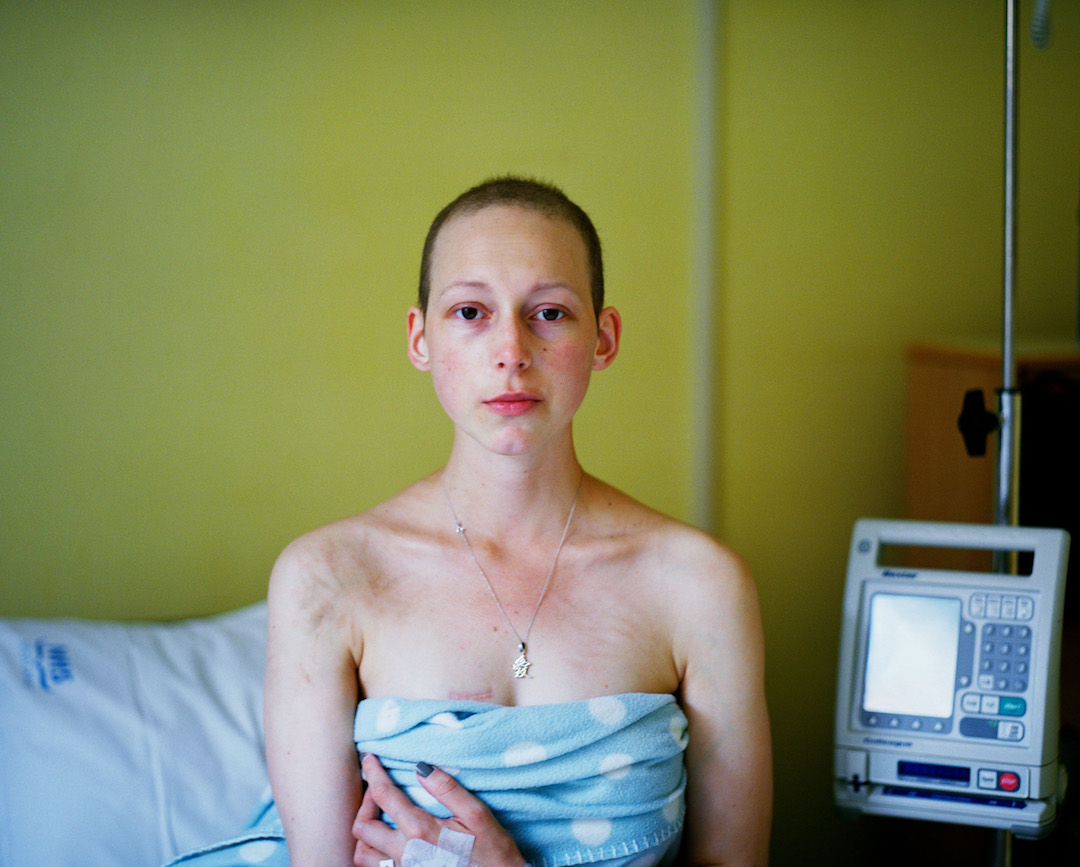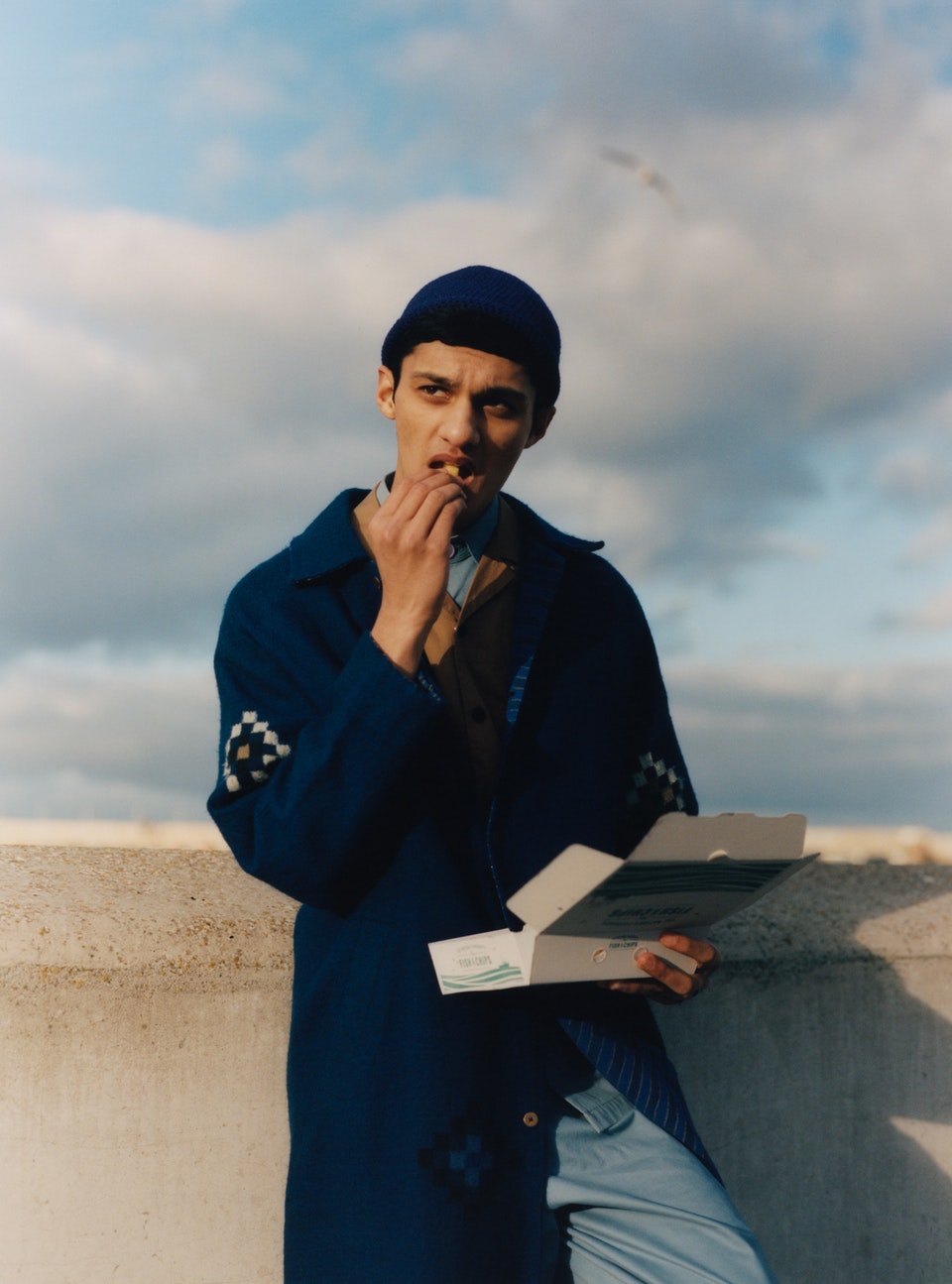Documentary photographer Carly Clarke has shot a remarkable array of subjects. One of her projects explores the modern epidemic of India’s ‘forgotten elders’, a generation neglected and abused by their adult children.
An earlier project, in contrast, explores the lighter topic of a Sussex brewery, while a third gives a behind-the-scenes view of a group of UK fishermen at work. Though her subjects differ hugely, the common thread is Clarke’s fascination with the way communities live across the globe.
Clarke creates her most compelling portraits, however, when she turns the camera on herself. Last Day of Chemotherapy, the image that was shortlisted for Portrait of Britain 2018, is part of her series Reality Trauma. Clarke started the series after being diagnosed with cancer, and the result is an unflinchingly honest stage-by-stage account of her chemotherapy treatment. This deeply personal, contemplative work, is proof of Clarke’s absolute dedication to photography, the art form that gave her hope during an extremely challenging time.
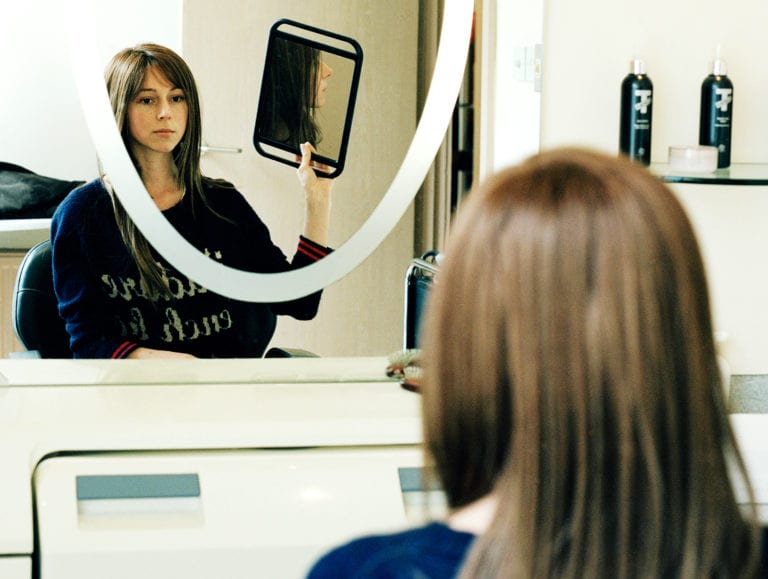
The image that was shortlisted for Portrait of Britain 2018 is a self-portrait taken from your series Reality Trauma, which documents your experience of chemotherapy. Why did you want to photograph this process?
At the time of my diagnosis, I was in my final year of studying Photography at Middlesex University. While I was overwhelmed with chemotherapy and the idea of possibly dying, I felt a need to record my journey and to document my life as it changed so drastically. Chemotherapy takes you to the very edge. I wasn’t sure if I would make it through, but I knew that my passion for photography would keep me focused while I endured the hardest time of my life.
The project was partly about coming to terms with my new identity. My image became unfamiliar, almost alien, as I lost my hair and so much weight. It was extremely difficult to face myself when I no longer recognised the person in the mirror, and some visitors in the hospital were even afraid to look at me.
The day I shot Last Day of Chemotherapy, I’d been rushed to hospital in excruciating pain because of an infection. I struggled to even lift my camera because of the pain, and the drugs I was on made it hard to think clearly. It was a defining end to chemotherapy and to my life-changing journey.
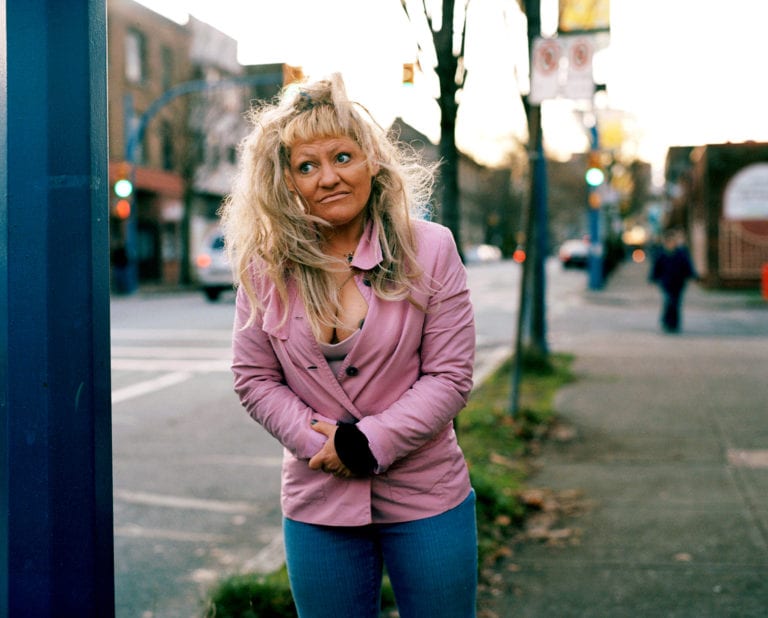
Your projects are extremely diverse. What draws you to a subject?
I’m driven to tell stories about the human condition, identity, different cultures, and anthropology.
Finding current social issues that need attention is what really drives me. I like to get deeply involved, get to know people personally and try to document an important issue from an insider’s perspective. For my project Remember Me: Vancouver’s DTES, I photographed people living on the streets in the Downtown East Side of Vancouver. For most of the people I encountered, addiction played a major role in why they were there. I told the story from their perspective, without judgment, and without altering the truth.
Why do you think Portrait of Britain is important today?
There are so many talented photographers struggling to find work or to be given an opportunity that can prove they have what it takes to work in editorial or documentary photography. It’s hard to balance a regular job and also work on personal projects full time. If there are more platforms like Portrait of Britain, there are more opportunities for exposure, which can result in commissions or exhibitions and means that photographers can dedicate more time to creating new work.
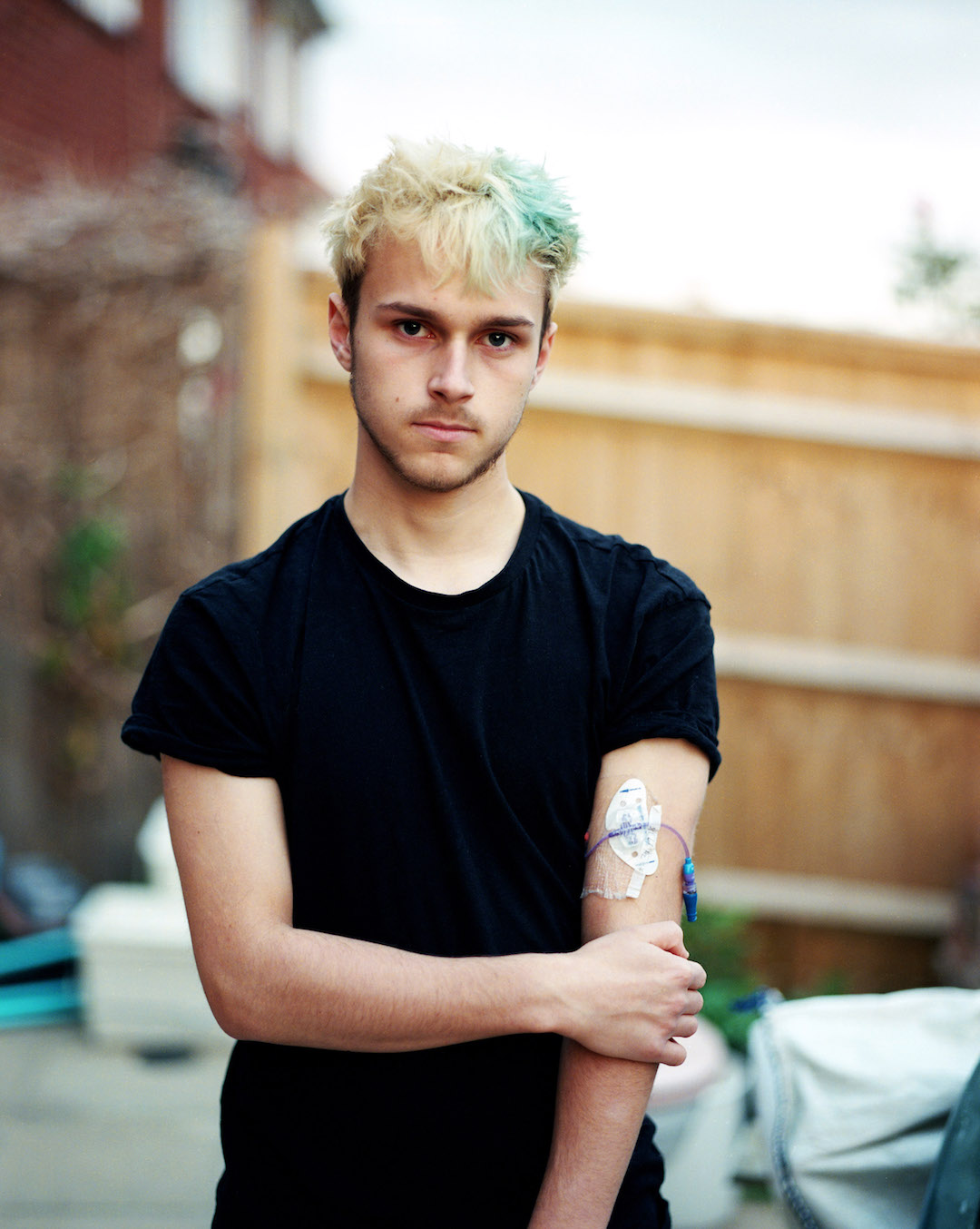
What do you think we’ll see in Portrait of Britain 2019?
I’m sure there will be a number of outstanding portraits that shed light on Britain’s huge divide as Brexit develops. I’m also expecting work on other topics, such as climate change, looking not just at how that affects the UK, but how that impacts globally.
What have you been doing since you were shortlisted? How has it boosted your career?
I have worked on the set of a movie called Summerland, which will be released this year. I won some honorable mentions in the International Photo Awards 2018 for my work Jamadagni’s Temple: The Real Full Moon Festival, which is set in the tribal village of Malana, India. And most recently, I had an article about me and my work Godhūlikāla: India’s Forgotten Elders, published in Luxembourg’s Contacto newspaper.
I’m currently finishing off a project with my younger brother, Joe, who was diagnosed with the same cancer as me, Stage 2b Hodgkin’s Lymphoma, last year. Thankfully, he is mostly clear and has now finished chemotherapy. I’m also trying to get funding to continue Godhūlikāla: India’s Forgotten Elders, because I’ve only touched the surface of such a pressing issue.
Further down the line I’d love to continue photographing tribal villages around the world, and to educate people about their unique cultures.
What advice would you give to someone thinking of entering Portrait of Britain 2019?
Life is too short to not give it a try, especially if you are serious about photography. Portrait of Britain gives you the opportunity to get feedback on your work from industry professionals, meet interesting people, have your work on display across the country and possibly boost your career.
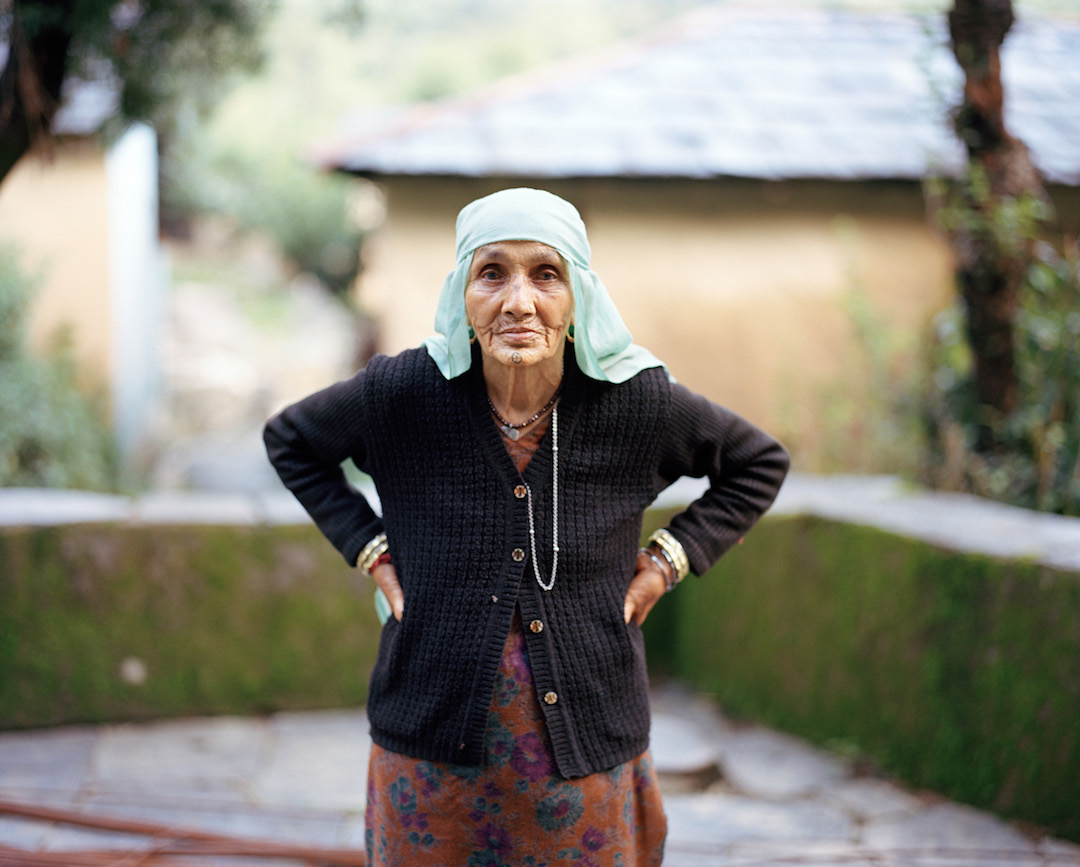
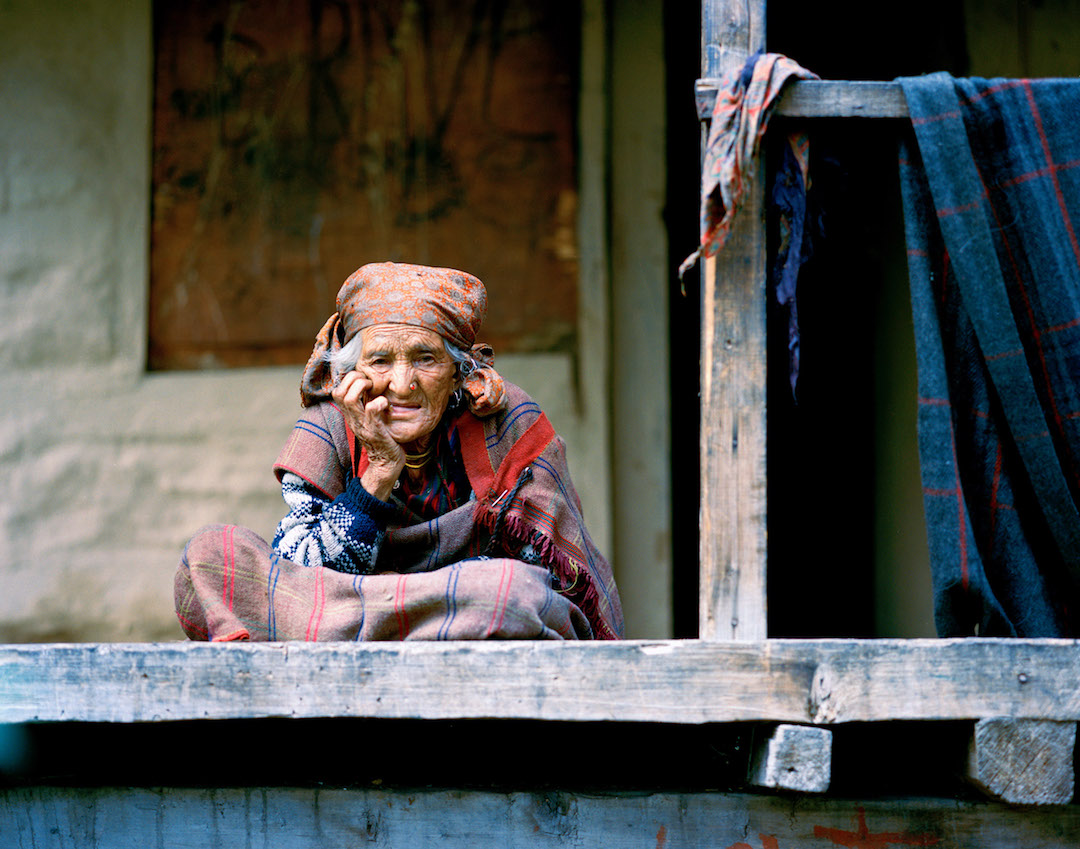
Portrait of Britain is an award-winning nationwide photography exhibition, run by British Journal of Photography, in partnership with JCDecaux.

